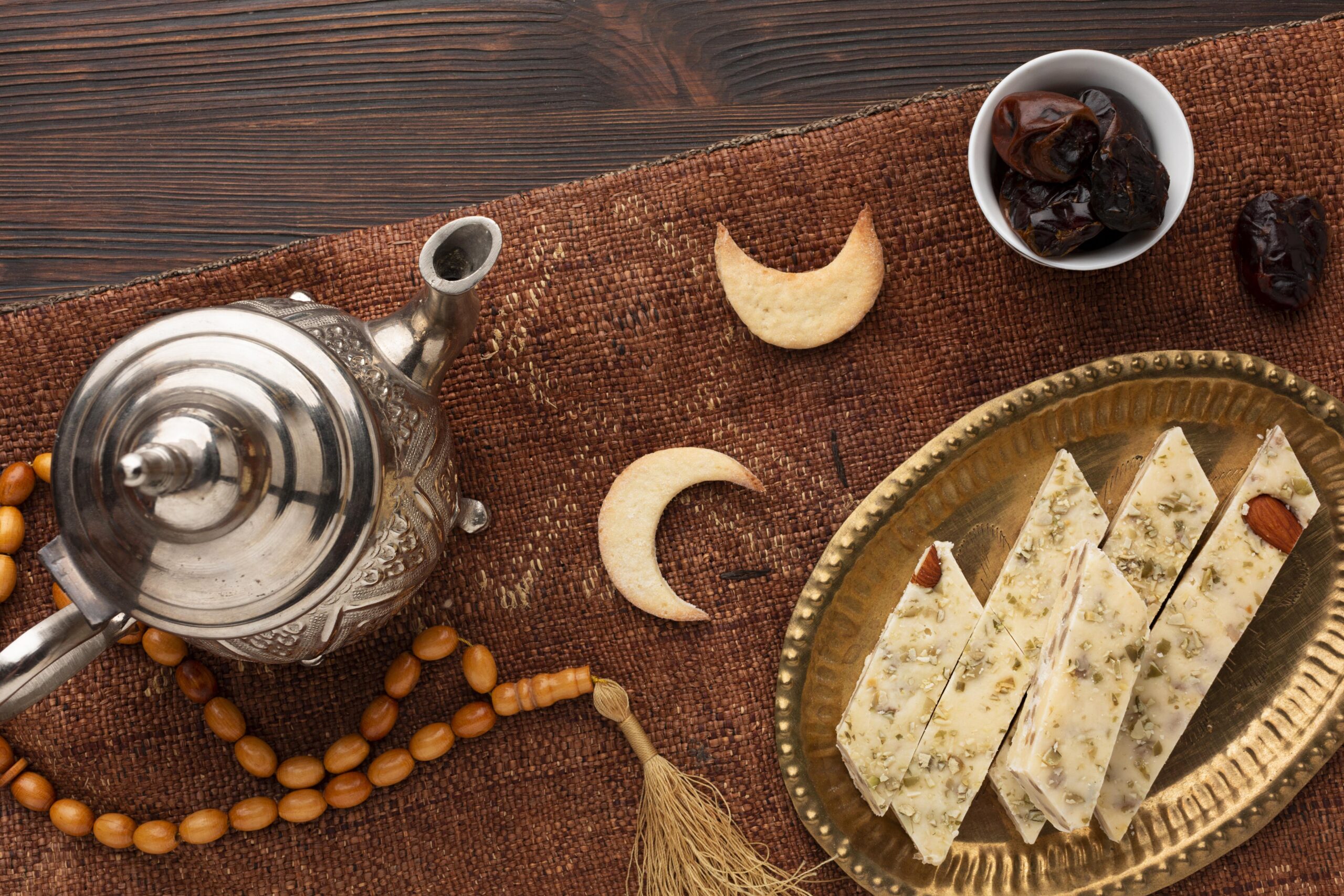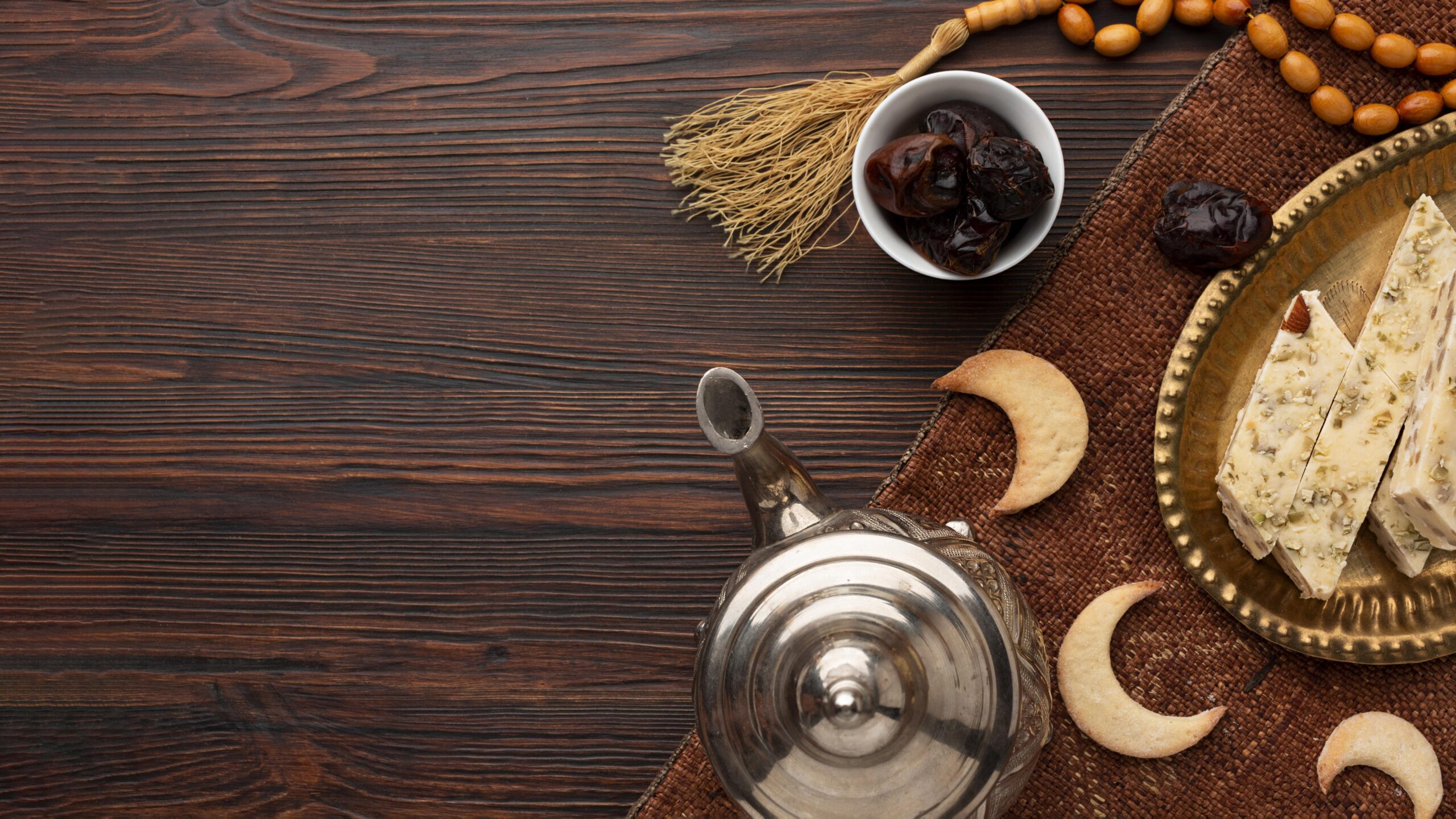
03.21.25
The Importance of Suhoor Time: Why It Matters in Ramadan
Suhoor (also known as sehri, suhur, or sahur) is one of the most important aspects of fasting in Ramadan. This is the pre-dawn meal that helps sustain energy levels throughout the day and brings spiritual blessings.
It is a time for nourishment, hydration, and quiet reflection before the fast begins. The Prophet Muhammad (ﷺ) himself encouraged eating this pre-dawn meal, calling it a source of barakah (blessings).
What is Suhoor?
Suhoor refers to the pre-dawn meal eaten before beginning the daily fast in Ramadan. It is a vital part of fasting, as it provides energy and hydration for the day ahead.
The meaning of the name in Arabic comes from the root word sahr, meaning “the last part of the night,” emphasising its timing just before Fajr prayer.
Suhoor time is not just about physical nourishment—it is also a spiritual practice. The Prophet Muhammad (ﷺ) encouraged Muslims to eat it, calling it a blessed meal:
“Eat suhoor, for in suhoor there is blessing.”
Bukhari and Muslim
In turn, this meal helps maintain strength throughout the fast, prevents dehydration, and gives an opportunity to seek Allah (SWT)’s blessings before the day begins.

What is the Significance of the pre-dawn meal?
Suhoor time is important for both physical and spiritual reasons.
Physically, it allows us to sustain energy levels, prevent dehydration, and reduce hunger and fatigue throughout the day.
Spiritually, eating suhoor is following the sunnah, gives more time to make du’a, and allows us to mentally prepare for the fasting day ahead.
When Does Suhoor End?
Suhoor ends at Fajr time, just before the call to prayer. Once the adhan for Fajr sounds out, eating and drinking must stop immediately.
The best practice is to eat the male as close to Fajr time as possible rather than hours before. As the Prophet (ﷺ) said,
“My ummah will always be upon goodness as long as they hasten to break their fast and delay their suhoor.”
Ahmad
This means delaying suhoor toward the end of its time ensures the maximum benefits for fasting. However, it’s important to be cautious of the exact time in your location and stop eating a few minutes before Fajr to avoid accidentally eating after the time has passed.
What happens if we miss Suhoor?
In Islam, there are no consequences for you if you miss suhoor, and is not a requirement for your fast to be valid. The fast begins at Fajr, and is valid as long as you have the Niyyah (intention) to fast and follow the rules of fasting throughout the day.
However, skipping suhoor can make fasting more challenging. As it can lead to exhaustion and difficulty focusing. That’s why it’s recommended to eat something before Fajr—even if it’s just a few dates and water.
Best Foods to Eat Before Fasting
To make the most of suhoor, it’s important to choose nutritious and hydrating foods that will sustain energy and keep you full.
Foods to try to avoid include salty, fried, or overly processed foods. This is because they can cause thirst and fatigue later in the day.
On the other hand, some of the best foods include:
- Complex Carbohydrates – Oats, whole grains, and brown rice provide long-lasting energy.
- Proteins – Eggs, yogurt, and nuts help keep you full for longer.
- Fruits and Vegetables – Bananas, dates, cucumbers, and watermelon help with hydration.
- Water – Drinking plenty of water at suhoor prevents dehydration throughout the day.

Suhoor, More Than a Meal
Suhoor is not just a meal. It is a blessed opportunity to nourish the body and soul before fasting.
So, in Ramadan, remember to make this meal a priority. For it is a simple yet powerful way to gain both physical strength and spiritual rewards.





